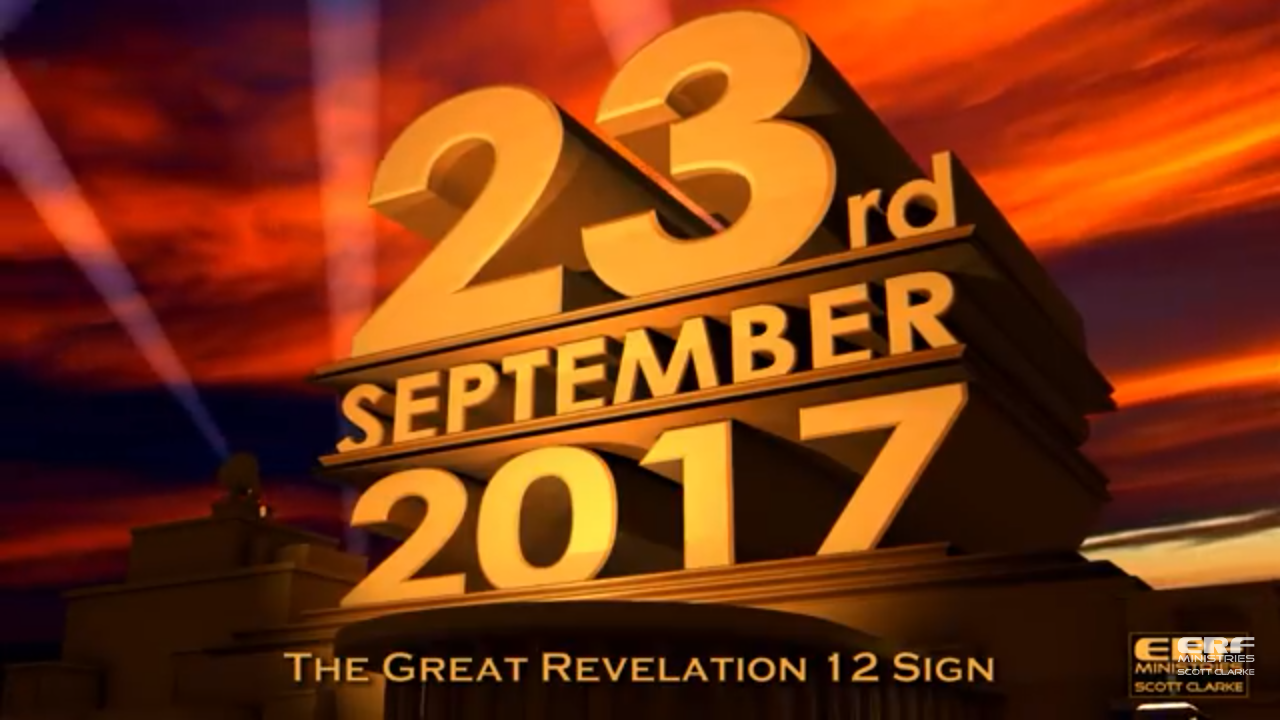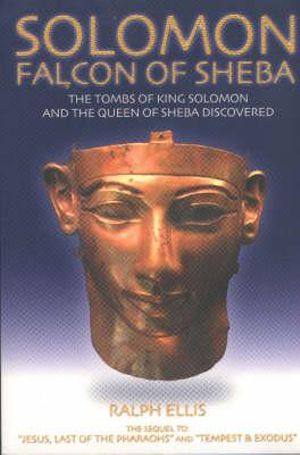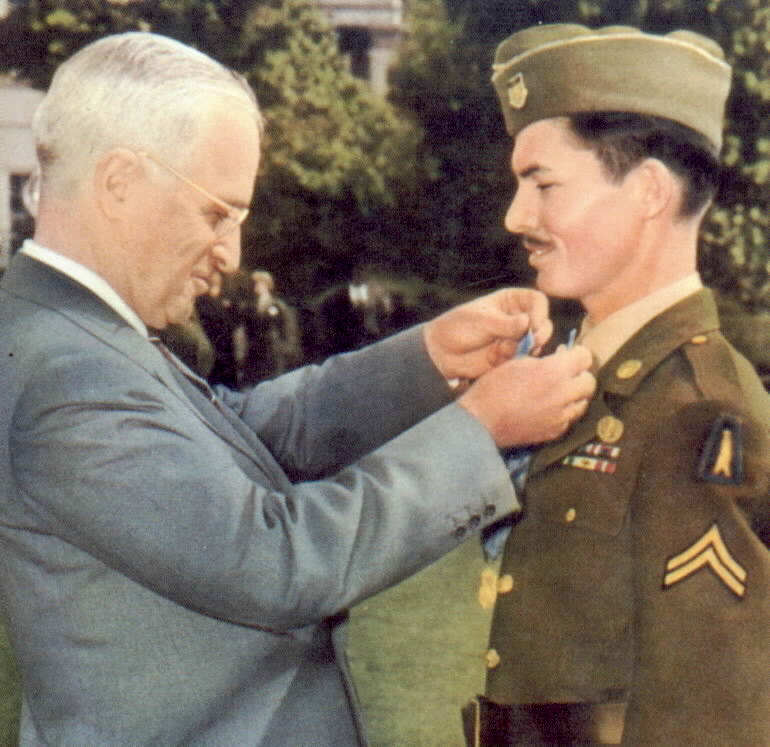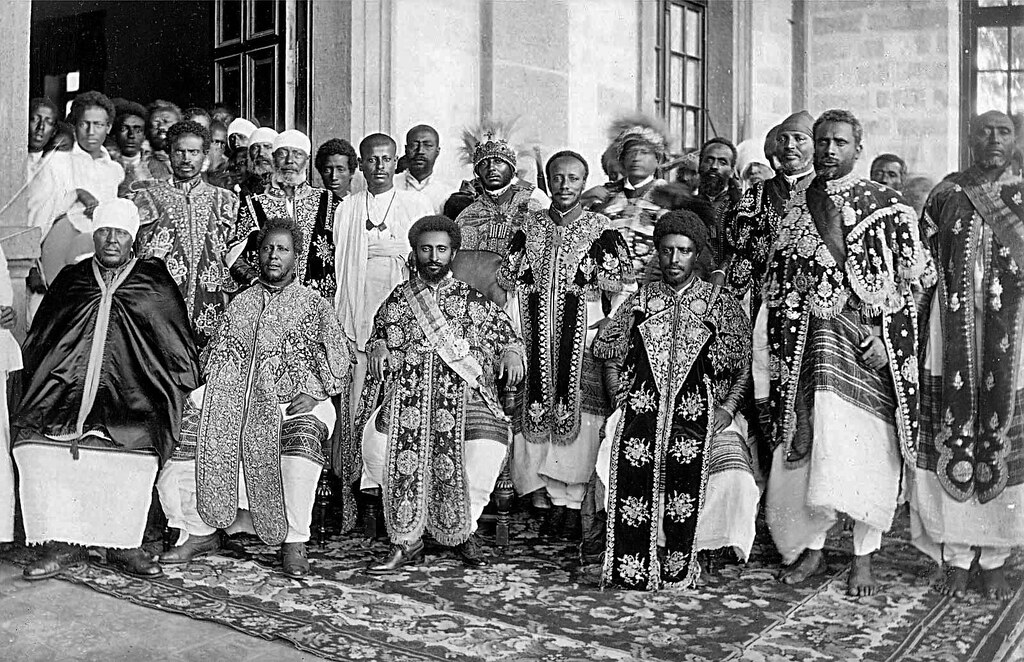











This Trump-Kim stuff is out of chronological-sequence. I officially ending posting at the end of August, for the rest of 2017, but I just HAD to respond to President Trump's UN speech!! I listened to all of it, but watched very little of it. Trump's eyes seemed strange to me. What if the words appear in his field of vision?? What if Top-People are Mind-Wired?? I remember Rush Limbaugh suggesting that President Clinton viewed vital-information in his field of vision (or something to that effect)!! I heard it on his show in the 1990's!! Presidents and Preachers seem to speak too-perfectly!! What Would Sherry Shriner Say?? An Individual of Interest recently suggested that I was somehow Mind-Wired!! If that's true, I think they screwed-up BIG-TIME!! It made me a bigger idiot than I already was!! But who do I sue?? Dr. Who?? The Aliens who abducted me, and operated on me (without my knowledge)?? What Would Judge Judy Do?? I think apocalyptic-possibilities are very real and serious, yet I feel compelled to create a somewhat warm and humorous context in which to think about the unthinkable. Again, I am a Law and Order Kind of Guy, rather than a Fire and Brimstone Apocalyptic-Salvation Kind of Guy!! I think I just threw-away a significant writing-job by being too honest (while sick and tired on the Bus from Hell)!! Is honesty REALLY the best policy?? I continue to suspect that We the Peons have a Legal-Problem of Biblical-Proportions. What is the Perfect Law of the Lord in:
1. Genesis through Esther??
2. Job through Malachi??
3. Matthew through Revelation??
4. The Conflict of the Ages Series by Ellen White??
I'm going to keep harping on some of my old-battles (just because I can). I think I've really angered this forum. I seem to be completely shunned. Everyone seems to know more about me than I know about myself. What the hell is going on?? I continue to think that placing the Biblical and Adventist Controversies in the Context of Science-Fiction and Alternative-Research is Significantly-Productive (if anyone bothered to notice and participate). As I've mentioned before, it's getting easier and easier to NOT Care whether anyone gives a damn about my threads, or not. Again, this thankless-activity is probably only followed by those who are paid to do so. That might be just as well. A lot of this stuff is either hopelessly-boring or unimaginably-terrifying. In the Bible and especially in the Writings of Ellen White -- it's almost White-Queen v Black-Queen and/or Nice-Queen v Mean-Queen!! But what if it takes a Nice-Queen AND Mean-Queen to Run a Solar System??!! Try marking a Bible and the Conflict of the Ages Series with two-colors of highlighters -- One Color for Loving and Nice Things -- and Another Color for Murder and Mayhem!! Or how about a Red-Letter Edition of the Bible -- with Hatred, Murder, and Mayhem marked with Red!! I should stop!!
http://www.whiteestate.org/books/pp/pp34.html Eleven days after leaving Mount Horeb the Hebrew host encamped at Kadesh, in the wilderness of Paran, which was not far from the borders of the Promised Land. Here it was proposed by the people that spies be sent up to survey the country. The matter was presented before the Lord by Moses, and permission was granted, with the direction that one of the rulers of each tribe should be selected for this purpose. The men were chosen as had been directed, and Moses bade them go and see the country, what it was, its situation and natural advantages; and the people that dwelt therein, whether they were strong or weak, few or many; also to observe the nature of the soil and its productiveness and to bring of the fruit of the land.
They went, and surveyed the whole land, entering at the southern border and proceeding to the northern extremity. They returned after an absence of forty days. The people of Israel were cherishing high hopes and were waiting in eager expectancy. The news of the spies' return was carried from tribe to tribe and was hailed with rejoicing. The people rushed out to meet the messengers, who had safely escaped the dangers of their perilous undertaking. The spies brought specimens of the fruit, showing the fertility of the soil. It was in the time of ripe grapes, and they brought a cluster of grapes so large that it was carried between two men. They also brought of the figs and pomegranates which grew there in abundance.
The people rejoiced that they were to come into possession of so goodly a land, and they listened intently as the report was brought to Moses, that not a word should escape them. "We came unto the land whither thou sentest us," the spies began, "and surely it floweth with milk and honey; and this is the fruit of it." The people were enthusiastic; they would eagerly obey the voice of the Lord, and go up at once to possess the land. But after describing the beauty and fertility of the land, all but two of the spies enlarged upon the difficulties and dangers that lay before the Israelites should they undertake the conquest of Canaan. They enumerated the powerful nations located in various parts of the country, and said that the cities were walled and very great, and the people who dwelt therein were strong, and it would be impossible to conquer them. They also stated that they had seen giants, the sons of Anak, there, and it was useless to think of possessing the land.
Now the scene changed. Hope and courage gave place to cowardly despair, as the spies uttered the sentiments of their unbelieving hearts, which were filled with discouragement prompted by Satan. Their unbelief cast a gloomy shadow over the congregation, and the mighty power of God, so often manifested in behalf of the chosen nation, was forgotten. The people did not wait to reflect; they did not reason that He who had brought them thus far would certainly give them the land; they did not call to mind how wonderfully God had delivered them from their oppressors, cutting a path through the sea and destroying the pursuing hosts of Pharaoh. They left God out of the question, and acted as though they must depend solely on the power of arms.
In their unbelief they limited the power of God and distrusted the hand that had hitherto safely guided them. And they repeated their former error of murmuring against Moses and Aaron. "This, then, is the end of our high hopes," they said. "This is the land we have traveled all the way from Egypt to possess." They accused their leaders of deceiving the people and bringing trouble upon Israel.
The people were desperate in their disappointment and despair. A wail of agony arose and mingled with the confused murmur of voices. Caleb comprehended the situation, and, bold to stand in defense of the word of God, he did all in his power to counteract the evil influence of his unfaithful associates. For an instant the people were stilled to listen to his words of hope and courage respecting the goodly land. He did not contradict what had already been said; the walls were high and the Canaanites strong. But God had promised the land to Israel. "Let us go up at once and possess it," urged Caleb; "for we are well able to overcome it."
But the ten, interrupting him, pictured the obstacles in darker colors than at first. "We be not able to go up against the people," they declared; "for they are stronger than we. . . . All the people that we saw in it are men of a great stature. And there we saw the giants, the sons of Anak, which come of the giants: and we were in our own sight as grasshoppers, and so we were in their sight."
These men, having entered upon a wrong course, stubbornly set themselves against Caleb and Joshua, against Moses, and against God. Every advance step rendered them the more determined. They were resolved to discourage all effort to gain possession of Canaan. They distorted the truth in order to sustain their baleful influence. It "is a land that eateth up the inhabitants thereof," they said. This was not only an evil report, but it was also a lying one. It was inconsistent with itself. The spies had declared the country to be fruitful and prosperous, and the people of giant stature, all of which would be impossible if the climate were so unhealthful that the land could be said to "eat up the inhabitants." But when men yield their hearts to unbelief they place themselves under the control of Satan, and none can tell to what lengths he will lead them.
"And all the congregation lifted up their voice, and cried; and the people wept that night." Revolt and open mutiny quickly followed; for Satan had full sway, and the people seemed bereft of reason. They cursed Moses and Aaron, forgetting that God hearkened to their wicked speeches, and that, enshrouded in the cloudy pillar, the Angel of His presence was witnessing their terrible outburst of wrath. In bitterness they cried out, "Would God that we had died in the land of Egypt! or would God we had died in this wilderness!" Then their feelings rose against God: "Wherefore hath the Lord brought us unto this land, to fall by the sword, that our wives and our children should be a prey? were it not better for us to return into Egypt? And they said one to another, Let us make a captain, and let us return into Egypt." Thus they accused not only Moses, but God Himself, of deception, in promising them a land which they were not able to possess. And they went so far as to appoint a captain to lead them back to the land of their suffering and bondage, from which they had been delivered by the strong arm of Omnipotence.
In humiliation and distress "Moses and Aaron fell on their faces before all the assembly of the congregation of the children of Israel," not knowing what to do to turn them from their rash and passionate purpose. Caleb and Joshua attempted to quiet the tumult. With their garments rent in token of grief and indignation, they rushed in among the people, and their ringing voices were heard above the tempest of lamentation and rebellious grief: "The land, which we passed through to search it, is an exceeding good land. If the Lord delight in us, then He will bring us into this land, and give it us; a land which floweth with milk and honey. Only rebel not ye against the Lord, neither fear ye the people of the land; for they are bread for us: their defense is departed from them, and the Lord is with us: fear them not."
The Canaanites had filled up the measure of their iniquity, and the Lord would no longer bear with them. His protection being removed, they would be an easy prey. By the covenant of God the land was ensured to Israel. But the false report of the unfaithful spies was accepted, and through it the whole congregation were deluded. The traitors had done their work. If only the two men had brought the evil report, and all the ten had encouraged them to possess the land in the name of the Lord, they would still have taken the advice of the two in preference to the ten, because of their wicked unbelief. But there were only two advocating the right, while ten were on the side of rebellion.
The unfaithful spies were loud in denunciation of Caleb and Joshua, and the cry was raised to stone them. The insane mob seized missiles with which to slay those faithful men. They rushed forward with yells of madness, when suddenly the stones dropped from their hands, a hush fell upon them, and they shook with fear. God had interposed to check their murderous design. The glory of His presence, like a flaming light, illuminated the tabernacle. All the people beheld the signal of the Lord. A mightier one than they had revealed Himself, and none dared continue their resistance. The spies who brought the evil report crouched terror-stricken, and with bated breath sought their tents.
Moses now arose and entered the tabernacle. The Lord declared to him, "I will smite them with the pestilence, and disinherit them, and will make of thee a greater nation." But again Moses pleaded for his people. He could not consent to have them destroyed, and he himself made a mightier nation. Appealing to the mercy of God, he said: "I beseech Thee, let the power of my Lord be great according as Thou hast spoken, saying, The Lord is long-suffering, and of great mercy. . . . Pardon, I beseech Thee, the iniquity of this people according to the greatness of Thy mercy, and as Thou hast forgiven this people, from Egypt even until now."
The Lord promised to spare Israel from immediate destruction; but because of their unbelief and cowardice He could not manifest His power to subdue their enemies. Therefore in His mercy He bade them, as the only safe course, to turn back toward the Red Sea.
In their rebellion the people had exclaimed, "Would God we had died in this wilderness!" Now this prayer was to be granted. The Lord declared: "As ye have spoken in Mine ears, so will I do to you: your carcasses shall fall in this wilderness, and all that were numbered of you, according to your whole number, from twenty years old and upward. . . . But your little ones, which ye said should be a prey, them will I bring in, and they shall know the land which ye have despised." And of Caleb He said, "My servant Caleb, because he had another spirit with him, and hath followed Me fully, him will I bring into the land whereinto he went; and his seed shall possess it." As the spies had spent forty days in their journey, so the hosts of Israel were to wander in the wilderness forty years.
When Moses made known to the people the divine decision, their rage was changed to mourning. They knew that their punishment was just. The ten unfaithful spies, divinely smitten by the plague, perished before the eyes of all Israel; and in their fate the people read their own doom.
Now they seemed sincerely to repent of their sinful conduct; but they sorrowed because of the result of their evil course rather than from a sense of their ingratitude and disobedience. When they found that the Lord did not relent in His decree, their self-will again arose, and they declared that they would not return into the wilderness. In commanding them to retire from the land of their enemies, God tested their apparent submission and proved that it was not real. They knew that they had deeply sinned in allowing their rash feelings to control them and in seeking to slay the spies who had urged them to obey God; but they were only terrified to find that they had made a fearful mistake, the consequences of which would prove disastrous to themselves. Their hearts were unchanged, and they only needed an excuse to occasion a similar outbreak. This presented itself when Moses, by the authority of God, commanded them to go back into the wilderness.
The decree that Israel was not to enter Canaan for forty years was a bitter disappointment to Moses and Aaron, Caleb and Joshua; yet without a murmur they accepted the divine decision. But those who had been complaining of God's dealings with them, and declaring that they would return to Egypt, wept and mourned greatly when the blessings which they had despised were taken from them. They had complained at nothing, and now God gave them cause to weep. Had they mourned for their sin when it was faithfully laid before them, this sentence would not have been pronounced; but they mourned for the judgment; their sorrow was not repentance, and could not secure a reversing of their sentence.
The night was spent in lamentation, but with the morning came a hope. They resolved to redeem their cowardice. When God had bidden them go up and take the land, they had refused; and now when He directed them to retreat they were equally rebellious. They determined to seize upon the land and possess it; it might be that God would accept their work and change His purpose toward them.
God had made it their privilege and their duty to enter the land at the time of His appointment, but through their willful neglect that permission had been withdrawn. Satan had gained his object in preventing them from entering Canaan; and now he urged them on to do the very thing, in the face of the divine prohibition, which they had refused to do when God required it. Thus the great deceiver gained the victory by leading them to rebellion the second time. They had distrusted the power of God to work with their efforts in gaining possession of Canaan; yet now they presumed upon their own strength to accomplish the work independent of divine aid. "We have sinned against the Lord," they cried; "we will go up and fight, according to all that the Lord our God commanded us." Deuteronomy 1:41. So terribly blinded had they become by transgression. The Lord had never commanded them to "go up and fight." It was not His purpose that they should gain the land by warfare, but by strict obedience to His commands.
Though their hearts were unchanged, the people had been brought to confess the sinfulness and folly of their rebellion at the report of the spies. They now saw the value of the blessing which they had so rashly cast away. They confessed that it was their own unbelief which had shut them out from Canaan. "We have sinned," they said, acknowledging that the fault was in themselves, and not in God, whom they had so wickedly charged with failing to fulfill His promises to them. Though their confession did not spring from true repentance, it served to vindicate the justice of God in His dealings with them.
The Lord still works in a similar manner to glorify His name by bringing men to acknowledge His justice. When those who profess to love Him complain of His providence, despise His promises, and, yielding to temptation, unite with evil angels to defeat the purposes of God, the Lord often so overrules circumstances as to bring these persons where, though they may have no real repentance, they will be convinced of their sin and will be constrained to acknowledge the wickedness of their course and the justice and goodness of God in His dealings with them. It is thus that God sets counteragencies at work to make manifest the works of darkness. And though the spirit which prompted to the evil course is not radically changed, confessions are made that vindicate the honor of God and justify His faithful reprovers, who have been opposed and misrepresented. Thus it will be when the wrath of God shall be finally poured out. When "the Lord cometh with ten thousand of His saints, to execute judgment upon all," He will also "convince all that are ungodly among them of all their ungodly deeds." Jude 14, 15. Every sinner will be brought to see and acknowledge the justice of his condemnation.
Regardless of the divine sentence, the Israelites prepared to undertake the conquest of Canaan. Equipped with armor and weapons of war, they were, in their own estimation, fully prepared for conflict; but they were sadly deficient in the sight of God and His sorrowful servants. When, nearly forty years later, the Lord directed Israel to go up and take Jericho, He promised to go with them. The ark containing His law was borne before their armies. His appointed leaders were to direct their movements, under the divine supervision. With such guidance, no harm could come to them. But now, contrary to the command of God and the solemn prohibition of their leaders, without the ark, and without Moses, they went out to meet the armies of the enemy.
The trumpet sounded an alarm, and Moses hastened after them with the warning, "Wherefore now do ye transgress the commandment of the Lord? but it shall not prosper. Go not up, for the Lord is not among you; that ye be not smitten before your enemies. For the Amalekites and the Canaanites are there before you, and ye shall fall by the sword."
The Canaanites had heard of the mysterious power that seemed to be guarding this people and of the wonders wrought in their behalf, and they now summoned a strong force to repel the invaders. The attacking army had no leader. No prayer was offered that God would give them the victory. They set forth with the desperate purpose to reverse their fate or to die in battle. Though untrained in war, they were a vast multitude of armed men, and they hoped by a sudden and fierce assault to bear down all opposition. They presumptuously challenged the foe that had not dared to attack them.
The Canaanites had stationed themselves upon a rocky tableland reached only by difficult passes and a steep and dangerous ascent. The immense numbers of the Hebrews could only render their defeat more terrible. They slowly threaded the mountain paths, exposed to the deadly missiles of their enemies above. Massive rocks came thundering down, marking their path with the blood of the slain. Those who reached the summit, exhausted with their ascent, were fiercely repulsed, and driven back with great loss. The field of carnage was strewn with the bodies of the dead. The army of Israel was utterly defeated. Destruction and death was the result of that rebellious experiment.
Forced to submission at last, the survivors "returned, and wept before the Lord;" but "the Lord would not hearken" to their voice. Deuteronomy 1:45. By their signal victory the enemies of Israel, who had before awaited with trembling the approach of that mighty host, were inspired with confidence to resist them. All the reports they had heard concerning the marvelous things that God had wrought for His people, they now regarded as false, and they felt that there was no cause for fear. That first defeat of Israel, by inspiring the Canaanites with courage and resolution, had greatly increased the difficulties of the conquest. Nothing remained for Israel but to fall back from the face of their victorious foes, into the wilderness, knowing that here must be the grave of a whole generation.
http://www.whiteestate.org/books/pp/pp35.html The judgments visited upon the Israelites served for a time to restrain their murmuring and insubordination, but the spirit of rebellion was still in the heart and eventually brought forth the bitterest fruits. The former rebellions had been mere popular tumults, arising from the sudden impulse of the excited multitude; but now a deep-laid conspiracy was formed, the result of a determined purpose to overthrow the authority of the leaders appointed by God Himself.
Korah, the leading spirit in this movement, was a Levite, of the family of Kohath, and a cousin of Moses; he was a man of ability and influence. Though appointed to the service of the tabernacle, he had become dissatisfied with his position and aspired to the dignity of the priesthood. The bestowal upon Aaron and his house of the priestly office, which had formerly devolved upon the first-born son of every family, had given rise to jealousy and dissatisfaction, and for some time Korah had been secretly opposing the authority of Moses and Aaron, though he had not ventured upon any open act of rebellion. He finally conceived the bold design of overthrowing both the civil and the religious authority. He did not fail to find sympathizers. Close to the tents of Korah and the Kohathites, on the south side of the tabernacle, was the encampment of the tribe of Reuben, the tents of Dathan and Abiram, two princes of this tribe, being near that of Korah. These princes readily joined in his ambitious schemes. Being descendants from the eldest son of Jacob, they claimed that the civil authority belonged to them, and they determined to divide with Korah the honors of the priesthood.
The state of feeling among the people favored the designs of Korah. In the bitterness of their disappointment, their former doubts, jealousy, and hatred had returned, and again their complaints were directed against their patient leader. The Israelites were continually losing sight of the fact that they were under divine guidance. They forgot that the Angel of the covenant was their invisible leader, that, veiled by the cloudy pillar, the presence of Christ went before them, and that from Him Moses received all his directions.
They were unwilling to submit to the terrible sentence that they must all die in the wilderness, and hence they were ready to seize upon every pretext for believing that it was not God but Moses who was leading them and who had pronounced their doom. The best efforts of the meekest man upon the earth could not quell the insubordination of this people; and although the marks of God's displeasure at their former perverseness were still before them in their broken ranks and missing numbers, they did not take the lesson to heart. Again they were overcome by temptation.
The humble shepherd's life of Moses had been far more peaceful and happy than his present position as leader of that vast assembly of turbulent spirits. Yet Moses dared not choose. In place of a shepherd's crook a rod of power had been given him, which he could not lay down until God should release him.
He who reads the secrets of all hearts had marked the purposes of Korah and his companions and had given His people such warning and instruction as might have enabled them to escape the deception of these designing men. They had seen the judgment of God fall upon Miriam because of her jealousy and complaints against Moses. The Lord had declared that Moses was greater than a prophet. "With him will I speak mouth to mouth." "Wherefore, then," He added, "were ye not afraid to speak against My servant Moses?" Numbers 12:8. These instructions were not intended for Aaron and Miriam alone, but for all Israel.
Korah and his fellow conspirators were men who had been favored with special manifestations of God's power and greatness. They were of the number who went up with Moses into the mount and beheld the divine glory. But since that time a change had come. A temptation, slight at first, had been harbored, and had strengthened as it was encouraged, until their minds were controlled by Satan, and they ventured upon their work of disaffection. Professing great interest in the prosperity of the people, they first whispered their discontent to one another and then to leading men of Israel. Their insinuations were so readily received that they ventured still further, and at last they really believed themselves to be actuated by zeal for God.
They were successful in alienating two hundred and fifty princes, men of renown in the congregation. With these strong and influential supporters they felt confident of making a radical change in the government and greatly improving upon the administration of Moses and Aaron.
Jealousy had given rise to envy, and envy to rebellion. They had discussed the question of the right of Moses to so great authority and honor, until they had come to regard him as occupying a very enviable position, which any of them could fill as well as he. And they deceived themselves and one another into thinking that Moses and Aaron had themselves assumed the positions they held. The discontented ones said that these leaders had exalted themselves above the congregation of the Lord, in taking upon them the priesthood and government, but their house was not entitled to distinction above others in Israel; they were no more holy than the people, and it should be enough for them to be on a level with their brethren, who were equally favored with God's special presence and protection.
The next work of the conspirators was with the people. To those who are in the wrong, and deserving of reproof, there is nothing more pleasing than to receive sympathy and praise. And thus Korah and his associates gained the attention and enlisted the support of the congregation. The charge that the murmurings of the people had brought upon them the wrath of God was declared to be a mistake. They said that the congregation were not at fault, since they desired nothing more than their rights; but that Moses was an overbearing ruler; that he had reproved the people as sinners, when they were a holy people, and the Lord was among them.
Korah reviewed the history of their travels through the wilderness, where they had been brought into strait places, and many had perished because of their murmuring and disobedience. His hearers thought they saw clearly that their troubles might have been prevented if Moses had pursued a different course. They decided that all their disasters were chargeable to him, and that their exclusion from Canaan was in consequence of the mismanagement of Moses and Aaron; that if Korah would be their leader, and would encourage them by dwelling upon their good deeds, instead of reproving their sins, they would have a very peaceful, prosperous journey; instead of wandering to and fro in the wilderness, they would proceed directly to the Promised Land.
In this work of disaffection there was greater union and harmony among the discordant elements of the congregation than had ever before existed. Korah's success with the people increased his confidence and confirmed him in his belief that the usurpation of authority by Moses, if unchecked, would be fatal to the liberties of Israel; he also claimed that God had opened the matter to him, and had authorized him to make a change in the government before it should be too late. But many were not ready to accept Korah's accusations against Moses. The memory of his patient, self-sacrificing labors came up before them, and conscience was disturbed. It was therefore necessary to assign some selfish motive for his deep interest for Israel; and the old charge was reiterated, that he had led them out to perish in the wilderness, that he might seize upon their possessions.
For a time this work was carried on secretly. As soon, however, as the movement had gained sufficient strength to warrant an open rupture, Korah appeared at the head of the faction, and publicly accused Moses and Aaron of usurping authority which Korah and his associates were equally entitled to share. It was charged, further, that the people had been deprived of their liberty and independence. "Ye take too much upon you," said the conspirators, "seeing all the congregation are holy, every one of them, and the Lord is among them: wherefore then lift ye up yourselves above the congregation of the Lord?"
Moses had not suspected this deep-laid plot, and when its terrible significance burst upon him, he fell upon his face in silent appeal to God. He arose sorrowful indeed, but calm and strong. Divine guidance had been granted him. "Even tomorrow," he said, "the Lord will show who are His, and who is holy; and will cause him to come near unto Him: even him whom He hath chosen will He cause to come near unto Him." The test was to be deferred until the morrow, that all might have time for reflection. Then those who aspired to the priesthood were to come each with a censer, and offer incense at the tabernacle in the presence of the congregation. The law was very explicit that only those who had been ordained to the sacred office should minister in the sanctuary. And even the priests, Nadab and Abihu, had been destroyed for venturing to offer "strange fire," in disregard of a divine command. Yet Moses challenged his accusers, if they dared enter upon so perilous an appeal, to refer the matter to God.
Singling out Korah and his fellow Levites, Moses said, "Seemeth it but a small thing unto you, that the God of Israel hath separated you from the congregation of Israel, to bring you near to Himself to do the service of the tabernacle of the Lord, and to stand before the congregation to minister unto them? And He hath brought thee near to Him, and all thy brethren the sons of Levi with thee: and seek ye the priesthood also? for which cause both thou and all thy company are gathered together against the Lord. And what is Aaron, that ye murmur against him?"
Dathan and Abiram had not taken so bold a stand as had Korah; and Moses, hoping that they might have been drawn into the conspiracy without having become wholly corrupted, summoned them to appear before him, that he might hear their charges against him. But they would not come, and they insolently refused to acknowledge his authority. Their reply, uttered in the hearing of the congregation, was, "Is it a small thing that thou hast brought us up out of a land that floweth with milk and honey, to kill us in the wilderness, except thou make thyself altogether a prince over us? Moreover thou hast not brought us into a land that floweth with milk and honey, or given us inheritance of fields and vineyards: wilt thou put out the eyes of these men? We will not come up."
Thus they applied to the scene of their bondage the very language in which the Lord had described the promised inheritance. They accused Moses of pretending to act under divine guidance, as a means of establishing his authority; and they declared that they would no longer submit to be led about like blind men, now toward Canaan, and now toward the wilderness, as best suited his ambitious designs. Thus he who had been as a tender father, a patient shepherd, was represented in the blackest character of a tyrant and usurper. The exclusion from Canaan, in punishment of their own sins, was charged upon him.
It was evident that the sympathies of the people were with the disaffected party; but Moses made no effort at self-vindication. He solemnly appealed to God, in the presence of the congregation, as a witness to the purity of his motives and the uprightness of his conduct, and implored Him to be his judge.
On the morrow, the two hundred and fifty princes, with Korah at their head, presented themselves, with their censers. They were brought into the court of the tabernacle, while the people gathered without, to await the result. It was not Moses who assembled the congregation to behold the defeat of Korah and his company, but the rebels, in their blind presumption, had called them together to witness their victory. A large part of the congregation openly sided with Korah, whose hopes were high of carrying his point against Aaron.
As they were thus assembled before God, "the glory of the Lord appeared unto all the congregation." The divine warning was communicated to Moses and Aaron, "Separate yourselves from among this congregation, that I may consume them in a moment." But they fell upon their faces, with the prayer, "O God, the God of the spirits of all flesh, shall one man sin, and wilt Thou be wroth with all the congregation?"
Korah had withdrawn from the assembly to join Dathan and Abiram when Moses, accompanied by the seventy elders, went down with a last warning to the men who had refused to come to him. The multitudes followed, and before delivering his message, Moses, by divine direction, bade the people, "Depart, I pray you, from the tents of these wicked men, and touch nothing of theirs, lest ye be consumed in all their sins." The warning was obeyed, for an apprehension of impending judgment rested upon all. The chief rebels saw themselves abandoned by those whom they had deceived, but their hardihood was unshaken. They stood with their families in the door of their tents, as if in defiance of the divine warning.
In the name of the God of Israel, Moses now declared, in the hearing of the congregation: "Hereby ye shall know that the Lord hath sent me to do all these works; for I have not done them of mine own mind. If these men die the common death of all men, or if they be visited after the visitation of all men, then the Lord hath not sent me. But if the Lord make a new thing, and the earth open her mouth, and swallow them up, with all that appertain unto them, and they go down quick into the pit, then ye shall understand that these men have provoked the Lord."
The eyes of all Israel were fixed upon Moses as they stood, in terror and expectation, awaiting the event. As he ceased speaking, the solid earth parted, and the rebels went down alive into the pit, with all that pertained to them, and "they perished from among the congregation." The people fled, self-condemned as partakers in the sin.
But the judgments were not ended. Fire flashing from the cloud consumed the two hundred and fifty princes who had offered incense. These men, not being the first in rebellion, were not destroyed with the chief conspirators. They were permitted to see their end, and to have an opportunity for repentance; but their sympathies were with the rebels, and they shared their fate.
When Moses was entreating Israel to flee from the coming destruction, the divine judgment might even then have been stayed, if Korah and his company had repented and sought forgiveness. But their stubborn persistence sealed their doom. The entire congregation were sharers in their guilt, for all had, to a greater or less degree, sympathized with them. Yet God in His great mercy made a distinction between the leaders in rebellion and those whom they had led. The people who had permitted themselves to be deceived were still granted space for repentance. Overwhelming evidence had been given that they were wrong, and that Moses was right. The signal manifestation of God's power had removed all uncertainty.
Jesus, the Angel who went before the Hebrews, sought to save them from destruction. Forgiveness was lingering for them. The judgment of God had come very near, and appealed to them to repent. A special, irresistible interference from heaven had arrested their rebellion. Now, if they would respond to the interposition of God's providence, they might be saved. But while they fled from the judgments, through fear of destruction, their rebellion was not cured. They returned to their tents that night terrified, but not repentant.
They had been flattered by Korah and his company until they really believed themselves to be very good people, and that they had been wronged and abused by Moses. Should they admit that Korah and his company were wrong, and Moses right, then they would be compelled to receive as the word of God the sentence that they must die in the wilderness. They were not willing to submit to this, and they tried to believe that Moses had deceived them. They had fondly cherished the hope that a new order of things was about to be established, in which praise would be substituted for reproof, and ease for anxiety and conflict.
The men who had perished had spoken flattering words and had professed great interest and love for them, and the people concluded that Korah and his companions must have been good men, and that Moses had by some means been the cause of their destruction.
It is hardly possible for men to offer greater insult to God than to despise and reject the instrumentalities He would use for their salvation. The Israelites had not only done this, but had purposed to put both Moses and Aaron to death. Yet they did not realize the necessity of seeking pardon of God for their grievous sin. That night of probation was not passed in repentance and confession, but in devising some way to resist the evidences which showed them to be the greatest of sinners. They still cherished hatred of the men of God's appointment, and braced themselves to resist their authority. Satan was at hand to pervert their judgment and lead them blindfold to destruction.
All Israel had fled in alarm at the cry of the doomed sinners who went down into the pit, for they said, "Lest the earth swallow us up also." "But on the morrow all the congregation of the children of Israel murmured against Moses and against Aaron, saying, ye have killed the people of the Lord." And they were about to proceed to violence against their faithful, self-sacrificing leaders.
A manifestation of the divine glory was seen in the cloud above the tabernacle, and a voice from the cloud spoke to Moses and Aaron, "Get you up from among this congregation, that I may consume them as in a moment."
The guilt of sin did not rest upon Moses, and hence he did not fear and did not hasten away and leave the congregation to perish. Moses lingered, in this fearful crisis manifesting the true shepherd's interest for the flock of his care. He pleaded that the wrath of God might not utterly destroy the people of His choice. By his intercession he stayed the arm of vengeance, that a full end might not be made of disobedient, rebellious Israel.
But the minister of wrath had gone forth; the plague was doing its work of death. By his brother's direction, Aaron took a censer and hastened into the midst of the congregation to "make an atonement for them." "And he stood between the dead and the living." As the smoke of the incense ascended, the prayers of Moses in the tabernacle went up to God; and the plague was stayed; but not until fourteen thousand of Israel lay dead, an evidence of the guilt of murmuring and rebellion.
But further evidence was given that the priesthood had been established in the family of Aaron. By divine direction each tribe prepared a rod and wrote upon it the name of the tribe. The name of Aaron was upon that of Levi. The rods were laid up in the tabernacle, "before the testimony." The blossoming of any rod was to be a token that the Lord had chosen that tribe for the priesthood. On the morrow, "behold, the rod of Aaron for the house of Levi was budded, and brought forth buds, and bloomed blossoms, and yielded almonds." It was shown to the people, and afterward laid up in the tabernacle as a witness to succeeding generations. This miracle effectually settled the question of the priesthood.
It was now fully established that Moses and Aaron had spoken by divine authority, and the people were compelled to believe the unwelcome truth that they were to die in the wilderness. "Behold," they exclaimed, "we die, we perish, we all perish." They confessed that they had sinned in rebelling against their leaders, and that Korah and his company had suffered from the just judgment of God.
In the rebellion of Korah is seen the working out, upon a narrower stage, of the same spirit that led to the rebellion of Satan in heaven. It was pride and ambition that prompted Lucifer to complain of the government of God, and to seek the overthrow of the order which had been established in heaven. Since his fall it has been his object to infuse the same spirit of envy and discontent, the same ambition for position and honor, into the minds of men. He thus worked upon the minds of Korah, Dathan, and Abiram, to arouse the desire for self-exaltation and excite envy, distrust, and rebellion. Satan caused them to reject God as their leader, by rejecting the men of God's appointment. Yet while in their murmuring against Moses and Aaron they blasphemed God, they were so deluded as to think themselves righteous, and to regard those who had faithfully reproved their sins as actuated by Satan.
Do not the same evils still exist that lay at the foundation of Korah's ruin? Pride and ambition are widespread; and when these are cherished, they open the door to envy, and a striving for supremacy; the soul is alienated from God, and unconsciously drawn into the ranks of Satan. Like Korah and his companions, many, even of the professed followers of Christ, are thinking, planning, and working so eagerly for self-exaltation that in order to gain the sympathy and support of the people they are ready to pervert the truth, falsifying and misrepresenting the Lord's servants, and even charging them with the base and selfish motives that inspire their own hearts. By persistently reiterating falsehood, and that against all evidence, they at last come to believe it to be truth. While endeavoring to destroy the confidence of the people in the men of God's appointment, they really believe that they are engaged in a good work, verily doing God service.
The Hebrews were not willing to submit to the directions and restrictions of the Lord. They were restless under restraint, and unwilling to receive reproof. This was the secret of their murmuring against Moses. Had they been left free to do as they pleased, there would have been fewer complaints against their leader. All through the history of the church God's servants have had the same spirit to meet.
It is by sinful indulgence that men give Satan access to their minds, and they go from one stage of wickedness to another. The rejection of light darkens the mind and hardens the heart, so that it is easier for them to take the next step in sin and to reject still clearer light, until at last their habits of wrongdoing become fixed. Sin ceases to appear sinful to them. He who faithfully preaches God's word, thereby condemning their sins, too often incurs their hatred. Unwilling to endure the pain and sacrifice necessary to reform, they turn upon the Lord's servant and denounce his reproofs as uncalled for and severe. Like Korah, they declare that the people are not at fault; it is the reprover that causes all the trouble. And soothing their consciences with this deception, the jealous and disaffected combine to sow discord in the church and weaken the hands of those who would build it up.
Every advance made by those whom God has called to lead in His work has excited suspicion; every act has been misrepresented by the jealous and faultfinding. Thus it was in the time of Luther, of the Wesleys and other reformers. Thus it is today.
Korah would not have taken the course he did had he known that all the directions and reproofs communicated to Israel were from God. But he might have known this. God had given overwhelming evidence that He was leading Israel. But Korah and his companions rejected light until they became so blinded that the most striking manifestations of His power were not sufficient to convince them; they attributed them all to human or satanic agency. The same thing was done by the people, who the day after the destruction of Korah and his company came to Moses and Aaron, saying, "Ye have killed the people of the Lord."
Notwithstanding they had had the most convincing evidence of God's displeasure at their course, in the destruction of the men who had deceived them, they dared to attribute His judgments to Satan, declaring that through the power of the evil one, Moses and Aaron had caused the death of good and holy men. It was this act that sealed their doom. They had committed the sin against the Holy Spirit, a sin by which man's heart is effectually hardened against the influence of divine grace. "Whosoever speaketh a word against the Son of man," said Christ, "it shall be forgiven him: but whosoever speaketh against the Holy Ghost, it shall not be forgiven him." Matthew 12:32. These words were spoken by our Saviour when the gracious works which He had performed through the power of God were attributed by the Jews to Beelzebub. It is through the agency of the Holy Spirit that God communicates with man; and those who deliberately reject this agency as satanic, have cut off the channel of communication between the soul and Heaven.
God works by the manifestation of His Spirit to reprove and convict the sinner; and if the Spirit's work is finally rejected, there is no more that God can do for the soul. The last resource of divine mercy has been employed. The transgressor has cut himself off from God, and sin has no remedy to cure itself. There is no reserved power by which God can work to convict and convert the sinner. "Let him alone" (Hosea 4:17) is the divine command. Then "there remaineth no more sacrifice for sins, but a certain fearful looking for of judgment and fiery indignation, which shall devour the adversaries." Hebrews 10:26, 27.



Last edited by orthodoxymoron on Wed Oct 18, 2017 3:18 pm; edited 17 times in total

















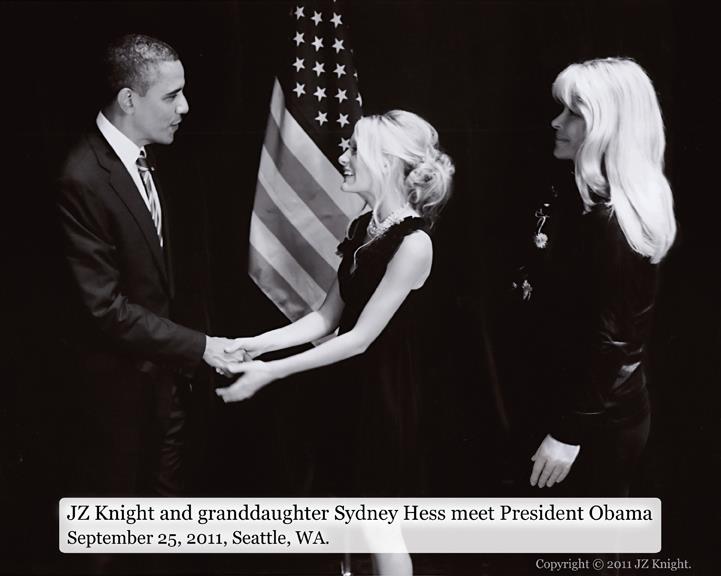































 by calling constantly for humility, by bringing us daily to our knees, by ending with us washing each others’ feet and sharing in Christ’s broken body and shed blood, showed us that while we can continue to discuss and study, the way forward is as brothers and sisters who have a shared message to tell to the world.
by calling constantly for humility, by bringing us daily to our knees, by ending with us washing each others’ feet and sharing in Christ’s broken body and shed blood, showed us that while we can continue to discuss and study, the way forward is as brothers and sisters who have a shared message to tell to the world.  christian BS observed in your community?
christian BS observed in your community?

 thanx 4 your updted readinglist, extracted all relevant ideas in 44 seconds and stay happy
thanx 4 your updted readinglist, extracted all relevant ideas in 44 seconds and stay happy

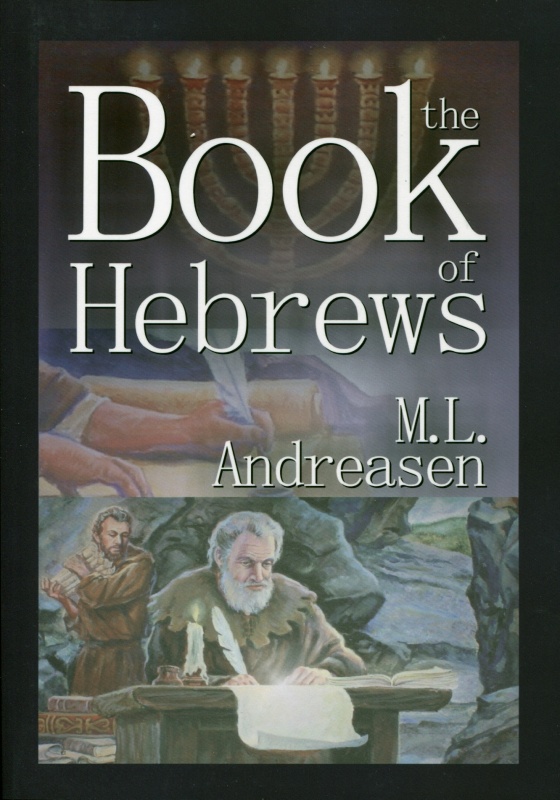





















.jpg)
















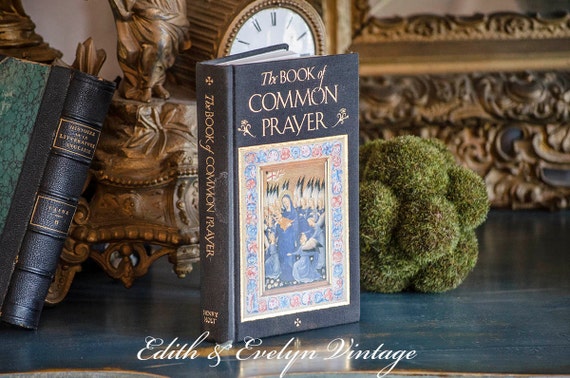










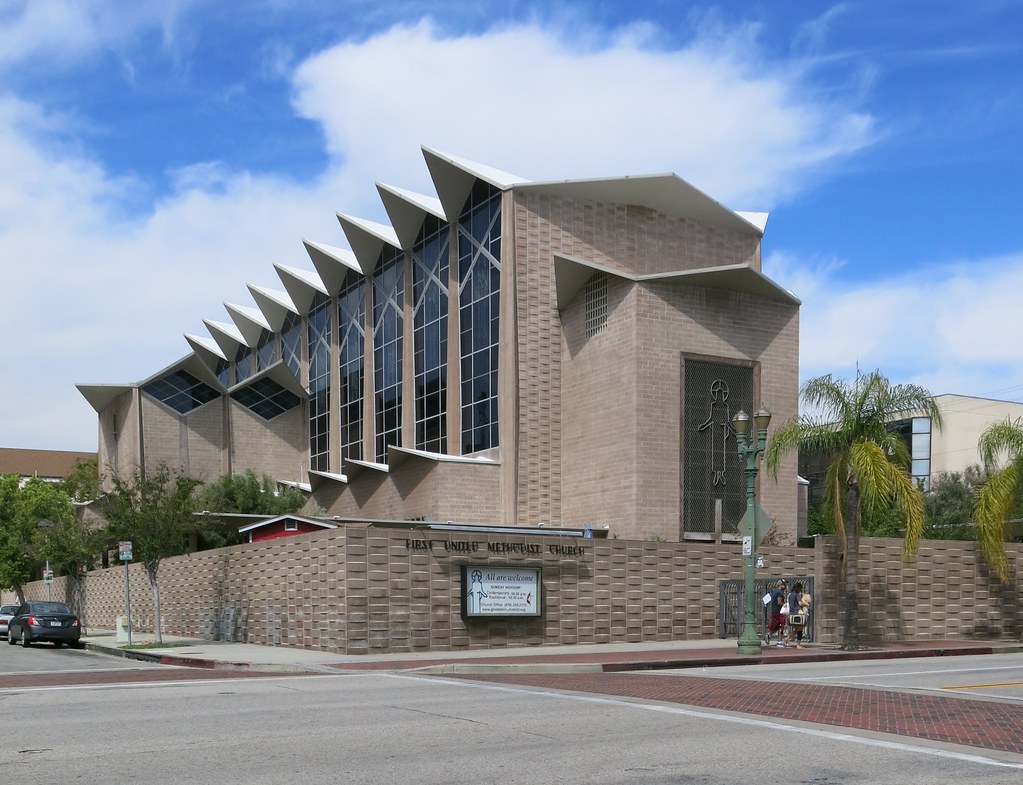


h(600)/af9cf564b52954424dca6dfa8f0ee86e.jpg)




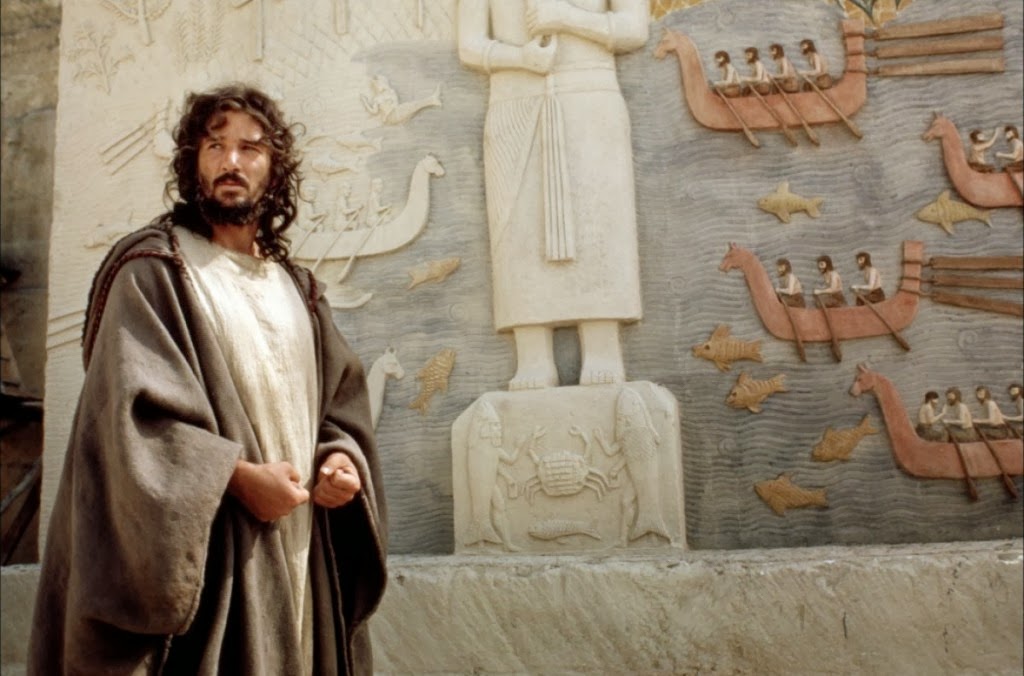
















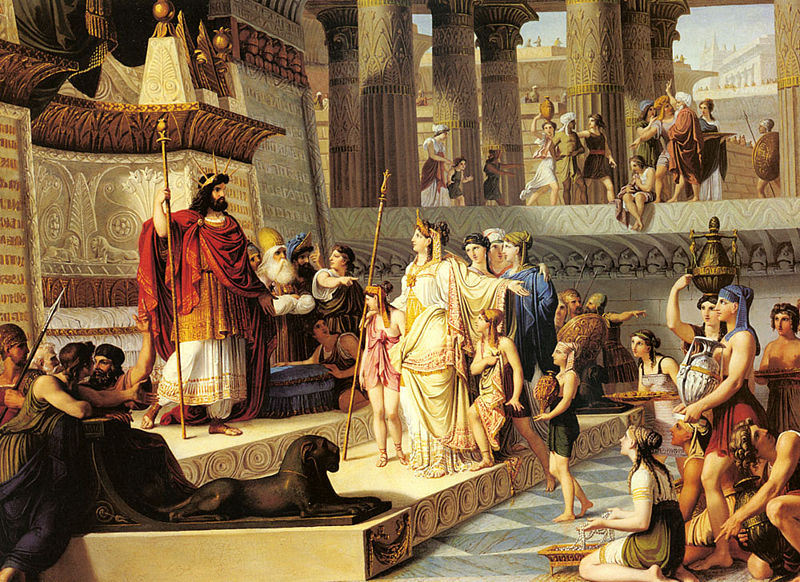

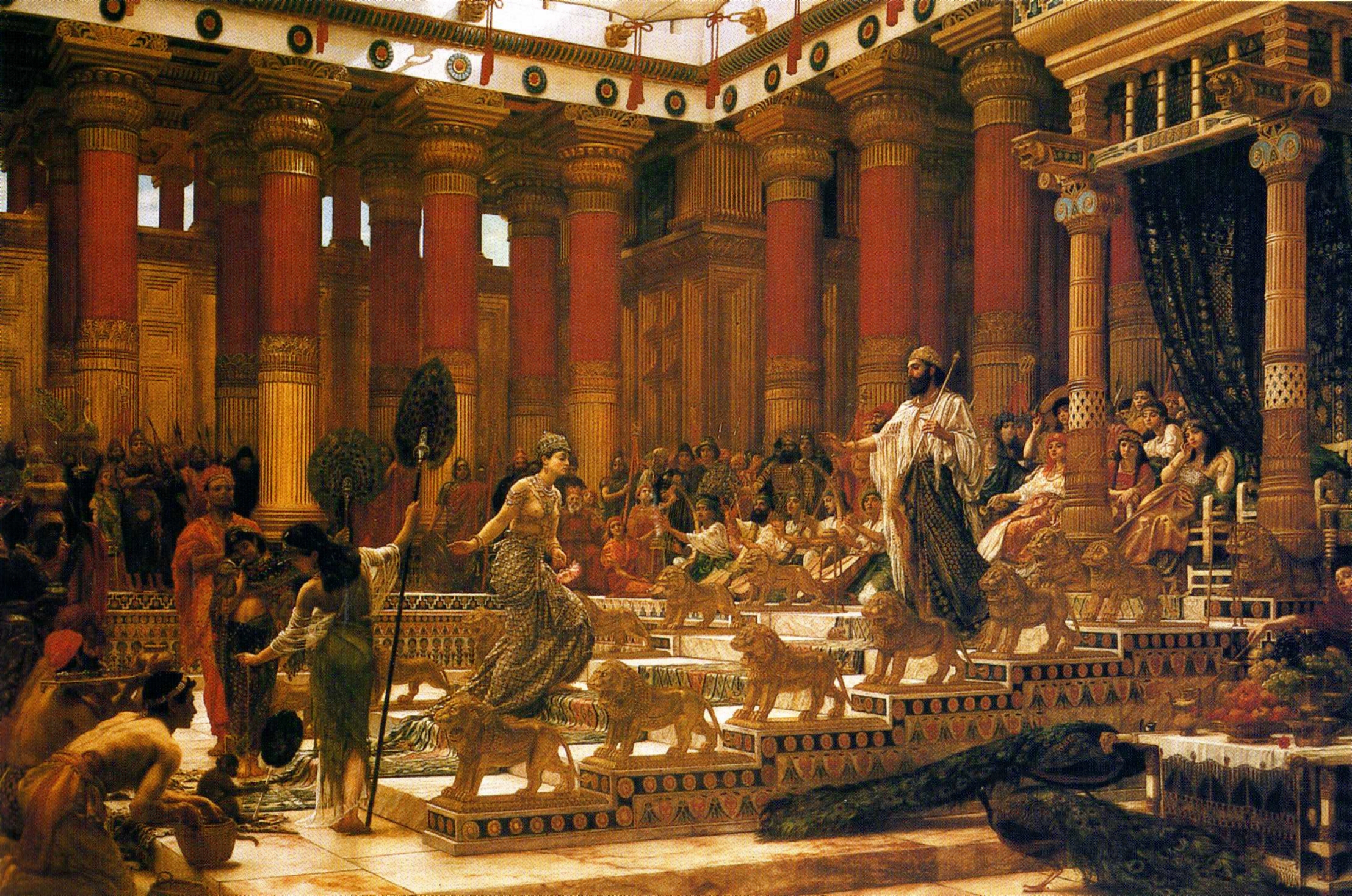



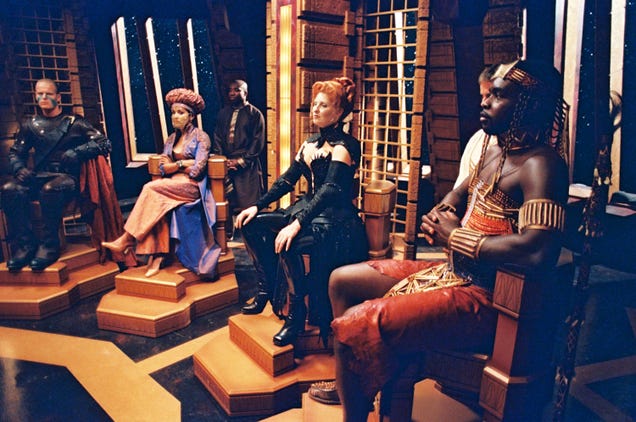













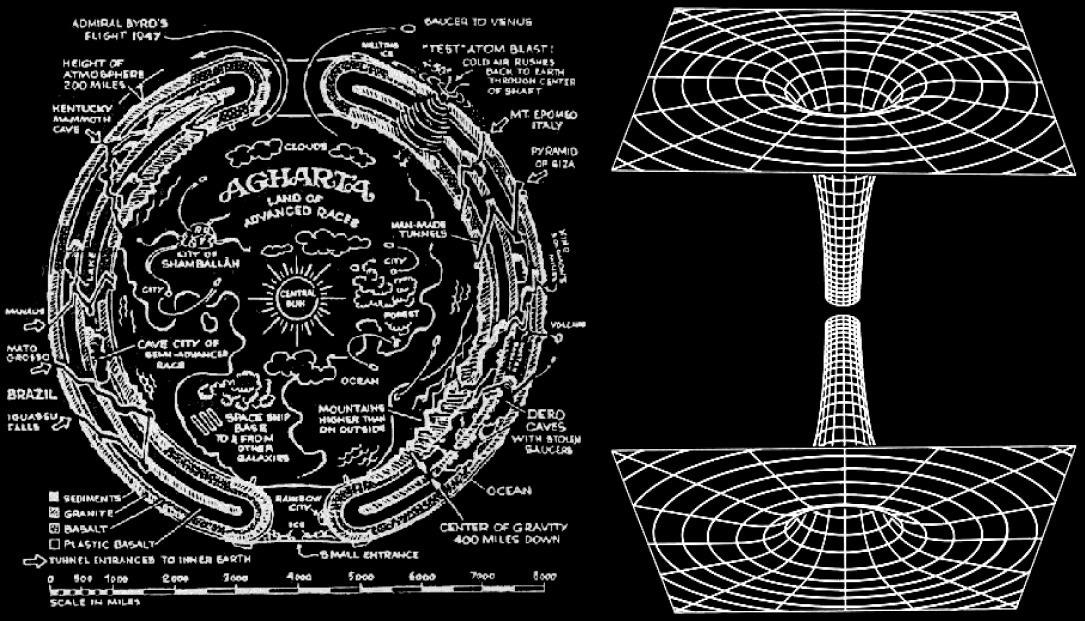






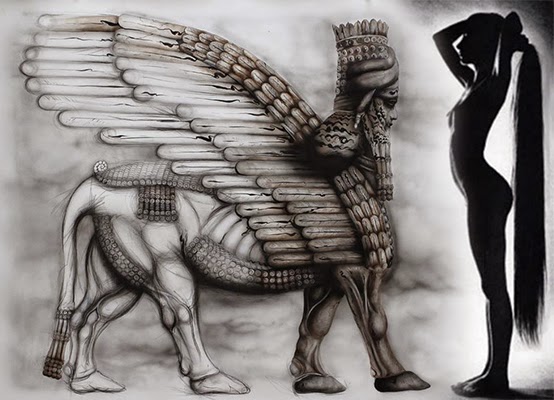














































/promo2x2/Jack-V-2009-Promo-2x02.jpg)
